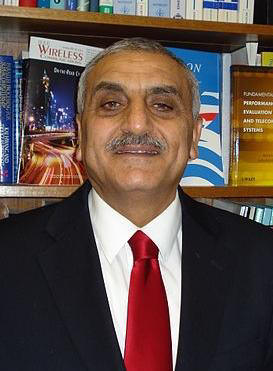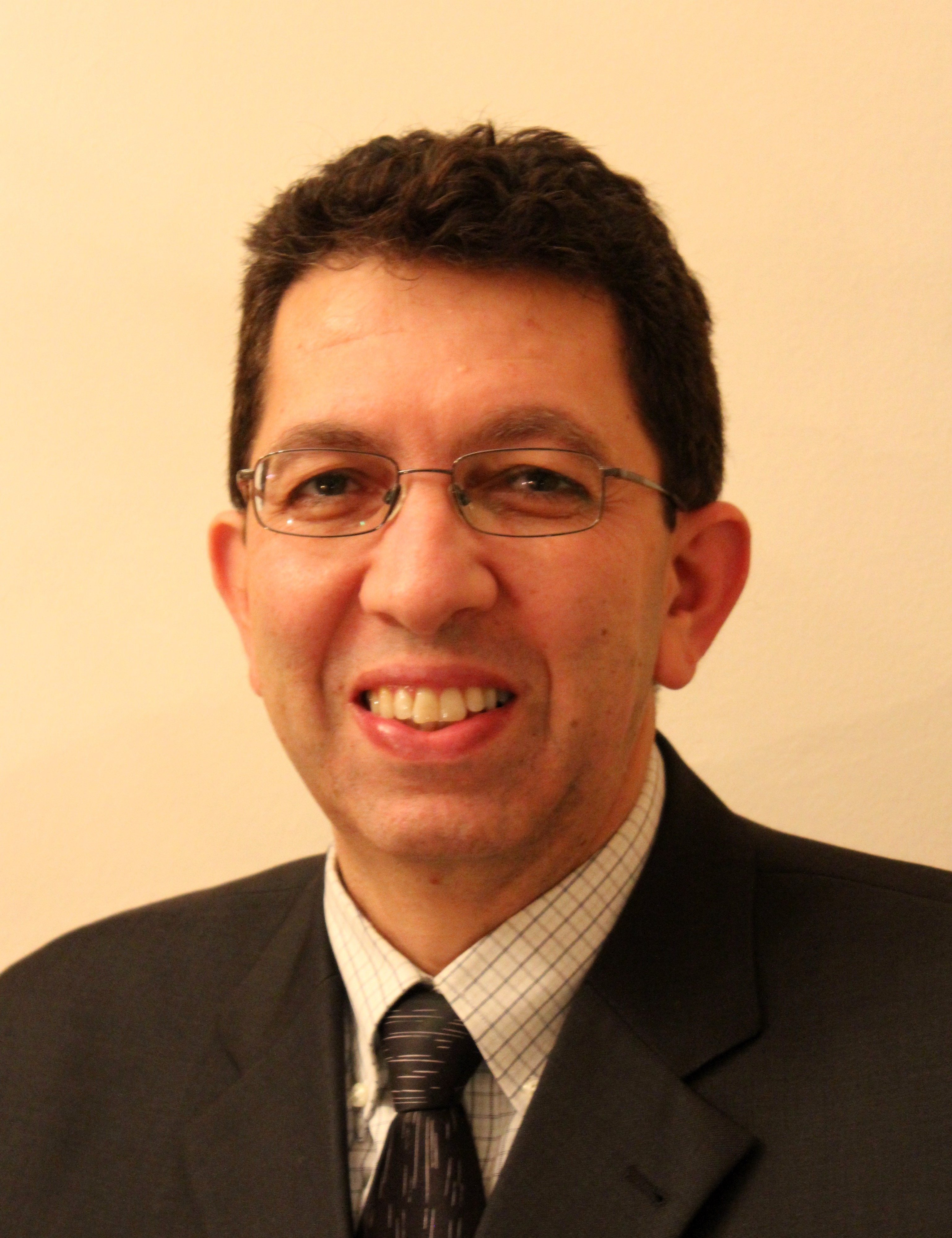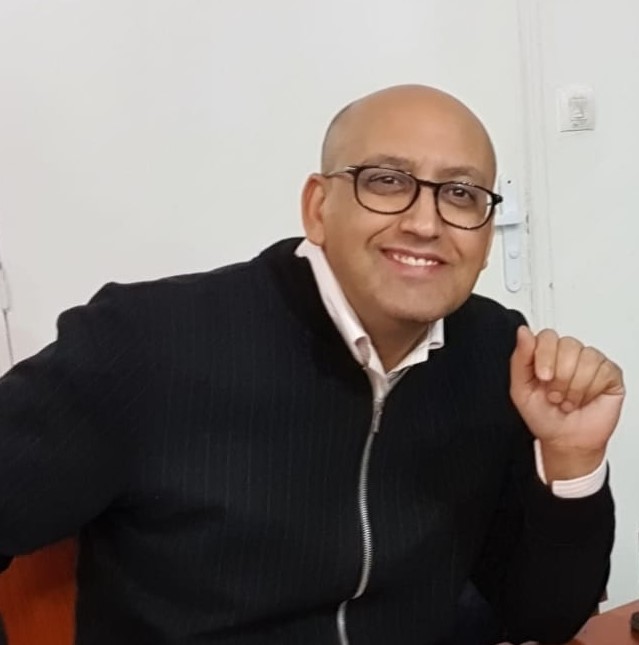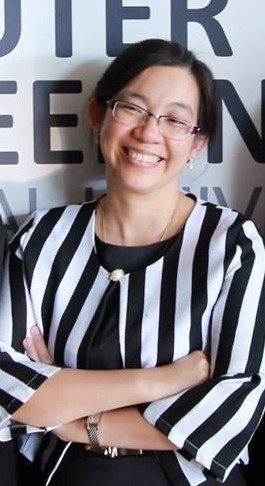


Prof. Mohammad S. Obaidat (IEEE LIFE FELLOW)
University of Sharjah, UAE
Biography: Professor Mohammad S. Obaidat (Fellow of IEEE 2005, Life Fellow of IEEE 2018) is an internationally known academic/researcher/scientist/ scholar. He received his Ph.D. degree in Computer Engineering with a minor in Computer Science from The Ohio State University, Columbus, USA. He has received extensive research funding and published To Date (2019) about One Thousand (1,000) refereed technical articles-About half of them are journal articles, over 95 books, and over 70 Book Chapters. He is Editor-in-Chief of 3 scholarly journals and an editor of many other international journals. He is the founding Editor-in Chief of Wiley Security and Privacy Journal. Moreover, he is founder or co-founder of 5 International Conferences.
Among his previous positions are Advisor to the President of Philadelphia University for Research, Development and Information Technology, President and Chair of Board of Directors of the Society for Molding and Simulation International, SCS, Senior Vice President of SCS, Dean of the College of Engineering at Prince Sultan University, Chair and tenured Professor at the Department of Computer and Information Science and Director of the MS Graduate Program in Data Analytics at Fordham university, Chair and tenured Professor of the Department of Computer Science and Director of the Graduate Program at Monmouth University, Tenured Full Professor at King Abdullah II School of Information Technology, University of Jordan, The PR of China Ministry of Education Distinguished Overseas Professor at the University of Science and Technology Beijing, China and an Honorary Distinguished Professor at the Amity University- A Global University. He is now the Founding Dean and Professor, College of Computing and Informatics at The University of Sharjah, UAE.
He has chaired numerous (Over 175) international conferences and has given numerous (Over 175) keynote speeches worldwide. He has served as ABET/CSAB evaluator and on IEEE CS Fellow Evaluation Committee. He has served as IEEE CS Distinguished Speaker/Lecturer and an ACM Distinguished Lecturer. Since 2004 has has been serving as an SCS Distinguished Lecturer. He received many best paper awards for his papers including ones from IEEE ICC, IEEE Globecom, AICSA, CITS, SPECTS, DCNET International conferences. He also received Best Paper awards from IEEE Systems Journal in 2018 and in 2019 (2 Best Paper Awards). In 2020, he received 4 best paper awards from IEEE Systems Journal. In 2021, he also received the IEEE Systems best paper award.
He also received many other worldwide awards for his technical contributions including: The 2018 IEEE ComSoc-Technical Committee on Communications Software Technical Achievement Award for contribution to Cybersecurity, Wireless Networks Computer Networks and Modeling and Simulation, SCS prestigious McLeod Founder's Award , Presidential Service Award, SCS Hall of Fame –Lifetime Achievement Award for his technical contribution to modeling and simulation and for his outstanding visionary leadership and dedication to increasing the effectiveness and broadening the applications of modeling and simulation worldwide. He also received the SCS Outstanding Service Award. He was awarded the IEEE CITS Hall of Fame Distinguished and Eminent Award.
He is a Life Fellow of IEEE and a Fellow of SCS.
Speech Title: A Learning Automata-Based Controller Placement System for Software-Defined Networks
Abstract: Software-defined networking (SDN) basically moves the control plane of network devices like switches and routers to the controller. The latter is responsible for managing the whole network using application programming interfaces (APIs). Fault tolerance in these networks can be handled by providing multiple controllers. Insertion controllers in an SDN network can be seen as facility location problem which is an NP-hard problem. In this keynote, we devise a heuristic algorithm for controller placement in SDN networks using a learning automaton (LA) scheme. The proposed scheme can places the controllers based on a predefined propagation latency between the controllers and the switches while minimizing the overall propagation latency. We conduct several simulations experiments, from the available topologies of ToplogyZoo, and the results show the superiority of the proposed algorithm when compared to competing current recent algorithms in terms of propagation latency.

Prof. Marios Polycarpou (IEEE FELLOW)
University of Cyprus, Cyprus
Biography: Marios Polycarpou is a Professor of Electrical and Computer Engineering and the Director of the KIOS Research and Innovation Center of Excellence at the University of Cyprus. He is also a Member of the Cyprus Academy of Sciences, Letters, and Arts, and an Honorary Professor of Imperial College London. He received the B.A degree in Computer Science and the B.Sc. in Electrical Engineering, both from Rice University, USA in 1987, and the M.S. and Ph.D. degrees in Electrical Engineering from the University of Southern California, in 1989 and 1992 respectively. His teaching and research interests are in intelligent systems and networks, adaptive and learning control systems, fault diagnosis, machine learning, and critical infrastructure systems. Dr. Polycarpou has published more than 350 articles in refereed journals, edited books and refereed conference proceedings, and co-authored 7 books. He is also the holder of 6 patents.
Prof. Polycarpou received the 2016 IEEE Neural Networks Pioneer Award. He is a Fellow of IEEE and IFAC and the recipient of the 2014 Best Paper Award for the journal Building and Environment (Elsevier). He served as the President of the IEEE Computational Intelligence Society (2012-2013), as the President of the European Control Association (2017-2019), and as the Editor-in-Chief of the IEEE Transactions on Neural Networks and Learning Systems (2004-2010). Prof. Polycarpou serves on the Editorial Boards of the Proceedings of the IEEE, the Annual Reviews in Control, and the Foundations and Trends in Systems and Control. His research work has been funded by several agencies and industry in Europe and the United States, including the prestigious European Research Council (ERC) Advanced Grant, the ERC Synergy Grant and the EU Teaming project.

Prof. Mohammed CHADLI
University Paris-Saclay, IBISC Lab. UEVE, France
Biography: Mohammed Chadli (Senior Member’99, IEEE) received the MScEng (DEA) from the Engineering School INSA-Lyon (1999), the PhD thesis in Automatic Control from the University of Lorraine (UL), CRAN-Nancy France in 2002 and his habilitation in 2011 at the University of Picardie Jules Verne (UPJV) Amiens, France. He was Lecturer and Assistant Professor at the UL “Institut National Polytechnique de Lorraine” (2000-2004). Since 2004, he was Associate Professor at the UPJV and currently Full Professor at the University Paris-Saclay, Univ Evry, IBISC Lab., France. He was a visiting professorship at the TUO-Ostrava (Czech Rep.), UiA (Norway), SMU-Shanghai (2014-2017), NUAA-Nanjing (2018, 2019) and the University of Naples Federico II (Italy). Dr Chadli’s research interests include fuzzy/LPV and switched systems, singular systems, robust control, fault detection and isolation (FDI), fault tolerant control (FTC) via LMI, SOS and Lyapunov methods. On the application side he is mainly interested in automotive control and renewable energy. He is co-author of books and book chapters (Wiley, Springer, Hermes), and numerous articles published in international journals and conferences. Dr. Chadli is a senior member of IEEE, an Editor/Associate Editor/Editorial Board Member of several international journals, including the IEEE Transactions on Fuzzy Systems, Automatica, the IET Control Theory and Applications, the Franklin Institute Journal, Asian Journal of Control. He is also Moderator for IEEE TechRxiv and was a Guest Editor for Special Issues in international journals.
Title: Observer Design in Finite Frequency domain: Some Results and Perspectives
Abstract: This presentation proposes some results on observer design and methods of fault detection filter synthesis for a class of nonlinear systems. Observer-based LMI synthesis methods for T-S systems subjected to unknown inputs are presented. Subsequently, multi-objective synthesis problem is discussed in FDI framework. When we are interested in these problems in finite frequency domains, these classic techniques (in infinite frequency domains) become quite restrictive. Indeed, the problem of multiobjective synthesis in the finite frequency domain is addressed. In a fault diagnosis context, the generated residue must be as sensitive as possible to faults and as robust as possible against unknown perturbations by means of two finite frequency performance indices such as the H_ and H∞ indexes. Still open perspectives will be discussed.

Assoc. Prof. Sansanee Auephanwiriyakul
Chiang Mai University, Thailand
Biography: Sansanee Auephanwiriyakul (S’98–M’01) received the B.Eng. (Hons.) degree in electrical engineering from the Chiang Mai University, Thailand (1993), the M.S. degree in electrical and computer engineering and Ph.D. degree in computer engineering and computer science, both from the University of Missouri, Columbia, in 1996, and 2000, respectively. After receiving her Ph.D. degree, she worked as a post-doctoral fellow at the Computational Intelligence Laboratory, University of Missouri-Columbia. She is currently an Associate Professor in the Department of Computer Engineering and a deputy director of the Biomedical Engineering Institute, Chiang Mai University, Thailand. Dr. Auephanwiriyakul is a senior member of the Institute of Electrical and Electronics Engineers (IEEE). She is an Associate Editor of the IEEE Transactions on Fuzzy System, the IEEE Transactions on Neural Networks and
Learning Systems, IEEE Computational Intelligence Magazine, IEEE Transactions on Artificial Intelligence, Engineering Applications of Artificial Intelligence, and ECTI Transactions on Computer and Information Technology. She was also an Editorial Board of several prominent journals. She was a general chair of the IEEE International Conference on Computational Intelligence in Bioinformatics and Computational Biology (CIBCB 2016). She will be a general chair of the IEEE World Congress on Computational Intelligence (WCCI) 2024 (IEEE International Conference on Fuzzy Systems 2024). She was a Technical Program Chair, Organizing Committee in several major conferences including the IEEE International, Conference Fuzzy Systems. She is also a member of several important IEEE CIS technical committees.
Speech Title: Fuzzy Set Theory in Robot Navigation System
Abstract: One of the popular theories used in data analysis is Fuzzy set theory, an extension of the classical set introduced by Lotfi Zadeh in 1965. Since then, there are many theories and applications developed based on Fuzzy set theory. One of the applications is in robot navigation system area. Path planning and obstacle avoidance are normally mentioned in the system. In this talk, we will demonstrate these two parts that we developed in our system.
We will start with an automatic robot path planning from a user hand-drawn map. This system is a communication method between a human and the robot. A graphic user interface is used to input the route direction from human. The system then translates the route direction into a linguistic description using fuzzy vector analysis. This description will be translated into robot commands. When the robot moves, there might be both static obstacle or dynamic obstacle along the route. Hence, in the last part of the talk, we will show a dynamic obstacle avoidance in our system. And, the robot navigation is assumed to be in an uncertain environment. A navigation system that can calculate and find a free road to avoid dynamic obstacle(s) by first predicting a future position(s) of dynamic obstacle(s) using interval type-2 fuzzy logic is then demonstrated. Finally, an implementation of this system in a real robot will be shown.